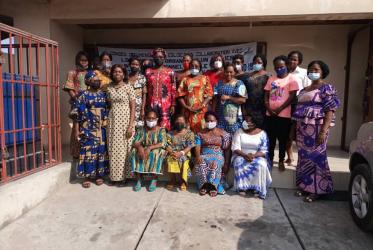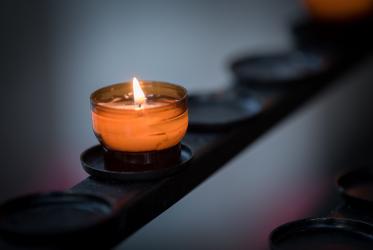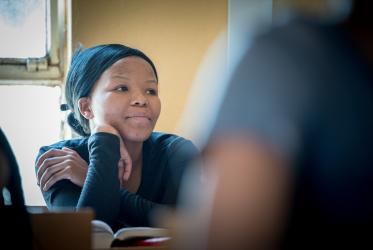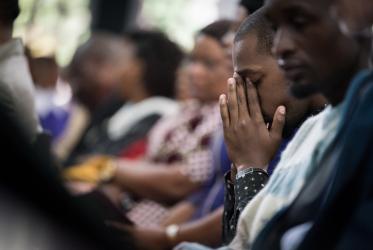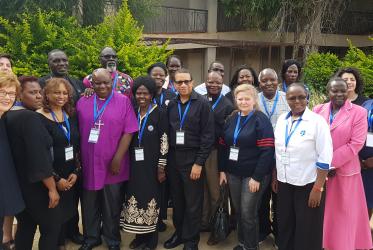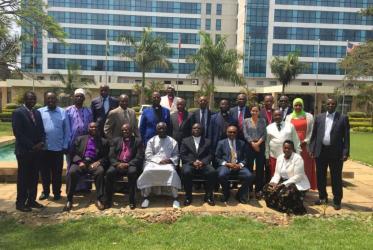Displaying 1 - 20 of 24
African Churches mark International Women’s Day
09 March 2021
Listening together to the pain of violent spaces
28 February 2020
African women embark on pilgrimage in Burundi
29 November 2017
Applications open for WCC Eco-School
10 May 2017
Youth engagement fundamental to HIV response
18 April 2017
Religious leaders explore message of peace in Burundi, DRC
23 February 2017

